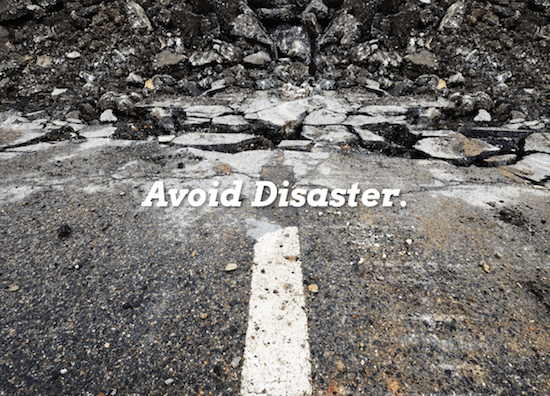Do you want your WordPress site to scale to accommodate high traffic volumes? This week, we published a brand new developer guide, “Scaling WordPress For High Traffic,” written by WP Engine developer Ryan Oeltjenbruns. In it, we arm you with best practices to get your site ready for massive traffic and major success. Here’s an excerpt:
SCALING WORDPRESS FOR HIGH TRAFFIC
 Is your site ready for a high traffic event? Say a piece of content goes viral, or gets upvoted on HackerNews; can your site handle it, or will it topple over? Don’t let your site’s success be its downfall. Whether you’re a developer or a website owner, you want your site to stand up to any amount of traffic. In this developer guide, we walk you through steps you can take and tools you can use to fortify your site and ensure it will stay up and stay speedy amid a barrage of visitors. Following these steps will help you boost page load speed and guarantee your site can scale no matter how much traffic comes your way.
Is your site ready for a high traffic event? Say a piece of content goes viral, or gets upvoted on HackerNews; can your site handle it, or will it topple over? Don’t let your site’s success be its downfall. Whether you’re a developer or a website owner, you want your site to stand up to any amount of traffic. In this developer guide, we walk you through steps you can take and tools you can use to fortify your site and ensure it will stay up and stay speedy amid a barrage of visitors. Following these steps will help you boost page load speed and guarantee your site can scale no matter how much traffic comes your way.
Click Here to Download the Free Developer Guide Now
Do you want to perk up your page load speeds and quickly scale your site? If so, it’s time to roll up your sleeves, because we’re about to dive into how to scale WordPress for high traffic.
By breaking down the process of how your site delivers content to your users, we can identify the elements that may be holding your site back, and help you better prepare for peak or spiky traffic.
First, we’ll dive into some of the major performance quirks that sites experience as they gain traction. Then we’ll look at what may be hogging your server resources.
 UNDERSTANDING HIGH TRAFFIC
UNDERSTANDING HIGH TRAFFIC
Bottlenecking traffic
Plugins and themes can sometimes perform fine at certain traffic levels, but as visits increase and peak times hit, server resources can be pushed beyond their breaking points.
Think of it like this: there is only so much a server can work through. Eventually the server will have more work to do than it can accomplish, and it will become overloaded.
Serving high traffic
Hightrafficaphobia got you down? Never! The solution to scale is simple: less is more.
Ensure that the request to your site requires as few server resources and as little effort as possible to render and serve. To do this: serve less, serve more efficiently, or both. Let’s look at both the backend (e.g. MySQL) and the frontend to see where we can start tuning.
KEEP YOUR OPTIONS TABLE UNDER CONTROL
 MySQL stores a lot of data in the Options table: plugins, themes, and the WordPress core all use that data.
MySQL stores a lot of data in the Options table: plugins, themes, and the WordPress core all use that data.
Overloading the Options table
In the Options table, the option_value is built to be a LONGTEXT column. In MySQL, this translates to columns that can store up to 4GB of data in a single row, but just because you can store that much data in one column doesn’t mean you
should.
Autoloaded queries
Autoloaded queries can be the silent page speed killer. If you’re having page load speed issues, try identifying how many queries are being autoloaded.
These queries assume the default table prefix of “wp_”
mysql> SELECT count(*) FROM wp_options WHERE autoload=’yes’;
A good rule of thumb is to shoot for fewer than 200 autoloaded queries on any given page (but having more than 200 isn’t the end of the world). Usually, an excessive amount of autoloaded queries indicates an established blog that still carries weight from plugins and themes of yesteryear. Help your blog chug along by getting rid of those old options!

To prep your site for massive traffic and avoid disaster, download the full Scaling WordPress For High Traffic developer guide now.


Hi guys!
Thanks to share this articles.
I think it can help lots of developers and website owners, great job!
Downloading the book now… 🙂
Loading down the book too! Thanks for the tip to check autoloaded queries.
thanks!
thanks
Looking to migrate our website onto a more robust platform
Hey guys,
Some great content out there, thanks!
Downloading…
I’d congratulates you first and foremost in the way you are helping peoples in the world of blogging . Specially peoples like me who interested in doing things by themselves by reading and trying
Do you have ebook for advance Seo ?
Hi, I attempted to grab the eBook ‘Scaling WordPress For High Traffic developer guide now’ however it was never sent to my email. No download in browser either 🙁 Could I please source a copy?
Cheers, Lachlan
I have the same problem
Same problem.
Sorry all. I have reached out to each of you to make sure you receive the ebook.
Same here
Nice info downloading the book
Hey Nice Article … Looking Forward to Download the E-Book & Are there any E-Books On SEO
interesting
I ran into this exact scenario recently, look forward to reading the article.
good
thanks!
Can’t wait to go through the book, should be interesting!
thanks for the ebook learning a lot from it
Hi,
I am developer and want as soon as possible the guide…it’s really urgent
I swear I missed something, There is no download link on my email nor anywhere. Where is it?
Thanks for sharing
i’ll consider to use wpengine in the future.
thanks
hope this leads to a download … eventually … 🙂
Pls how do I download it?
Thanks for sharing….it is interesting.
great tips insyd.it is really going to help me in my real world.
Pretty good explanations! Downloaded the e book.
Thanks so much. Have a great weekend.
Why don’t you mention Varnish cache? It is without a doubt the fastest way to speed up WordPress and use warm up scripts and hash_always_miss. This way you avoid the slow php backend and always serve fast cached posts, pages, categories etc.
I use these WordPress Varnish scripts (plugin is in development) so my site is always fast on a $5 a month VPS.
MySQL tweaks are great but there is no beating avoiding MySQL and PHP (use memcached or redis for caching objects and db queries).
Im having issues with the DL.
Wow.. Fantastic E-book. i was really in search of a guide to Optimization. going to download it.
Thank You very much
Thanks for sharing this detailed article.
I really can’t believe that I gave you my phone number for this ebook. It’s not worth it.
Thanks for the guide.